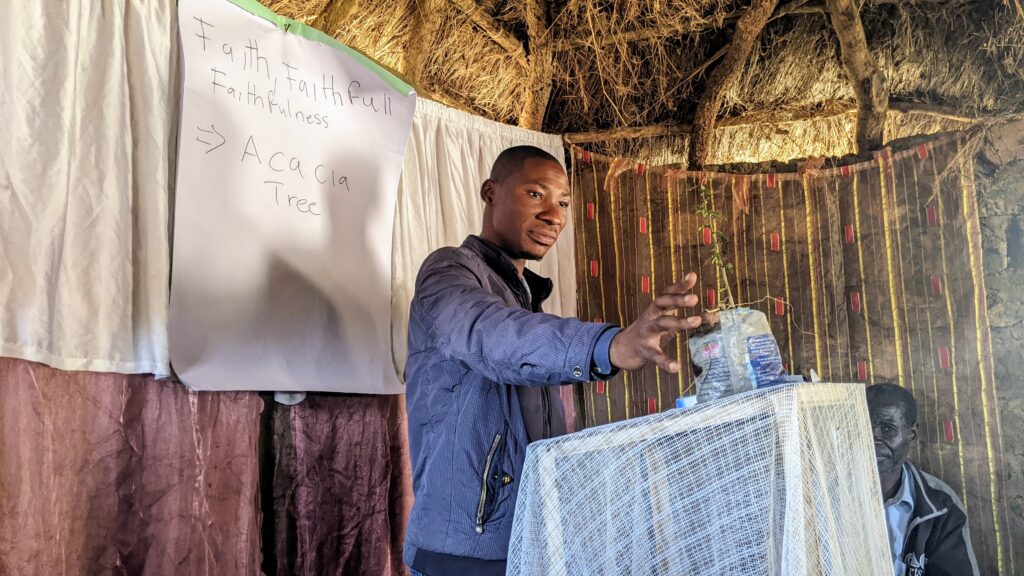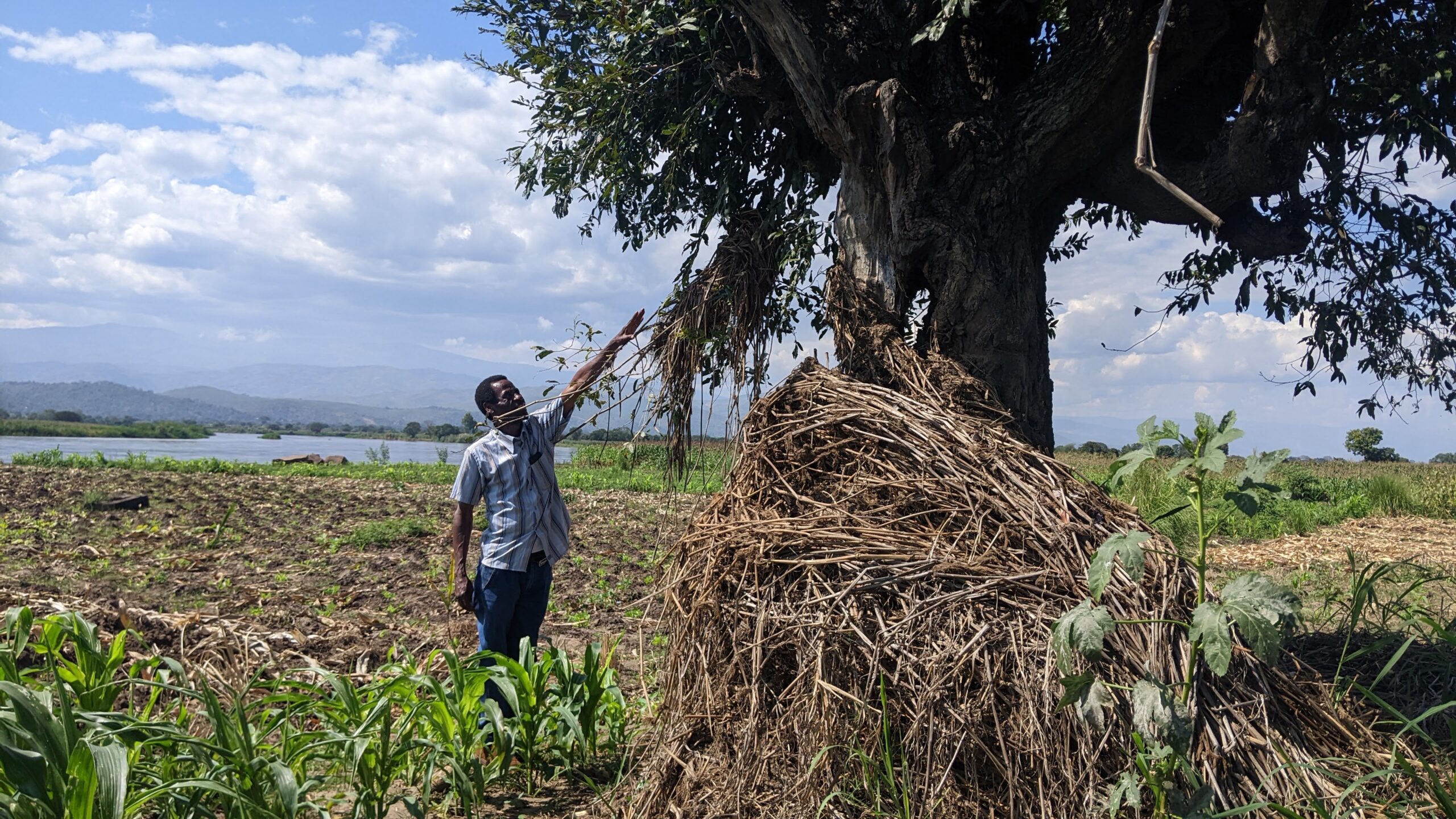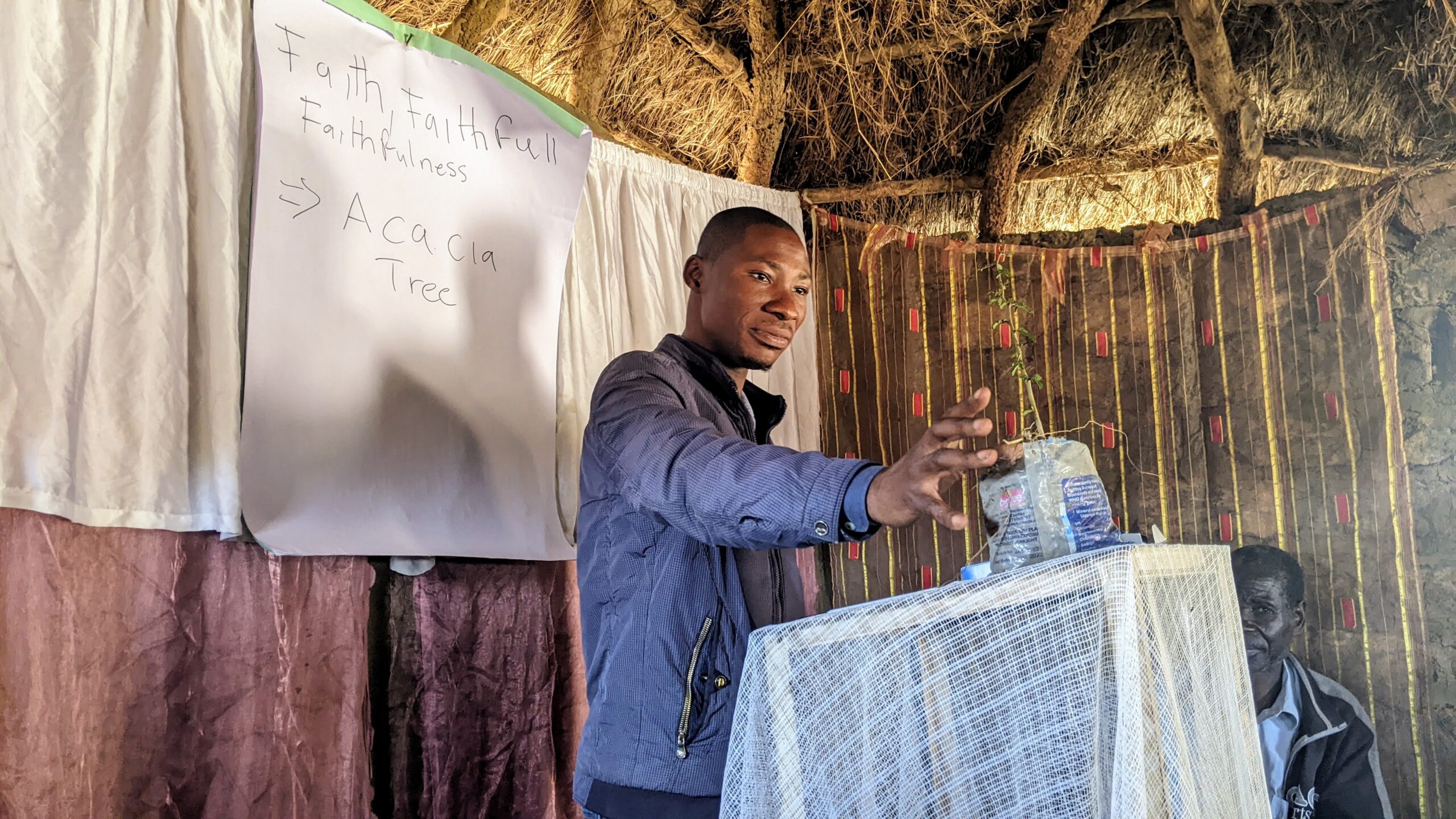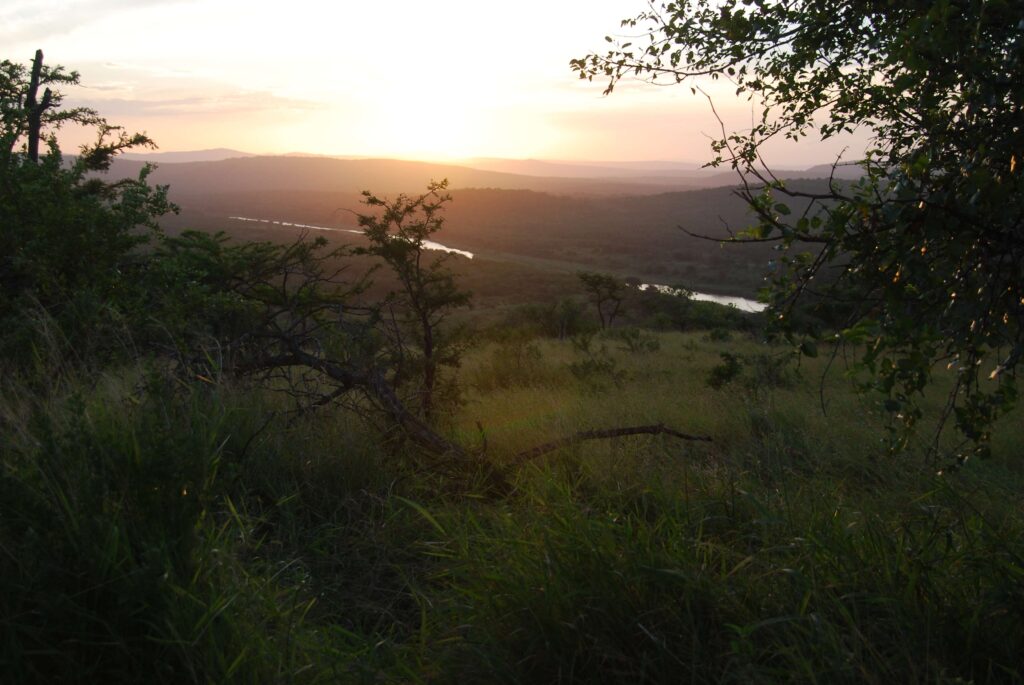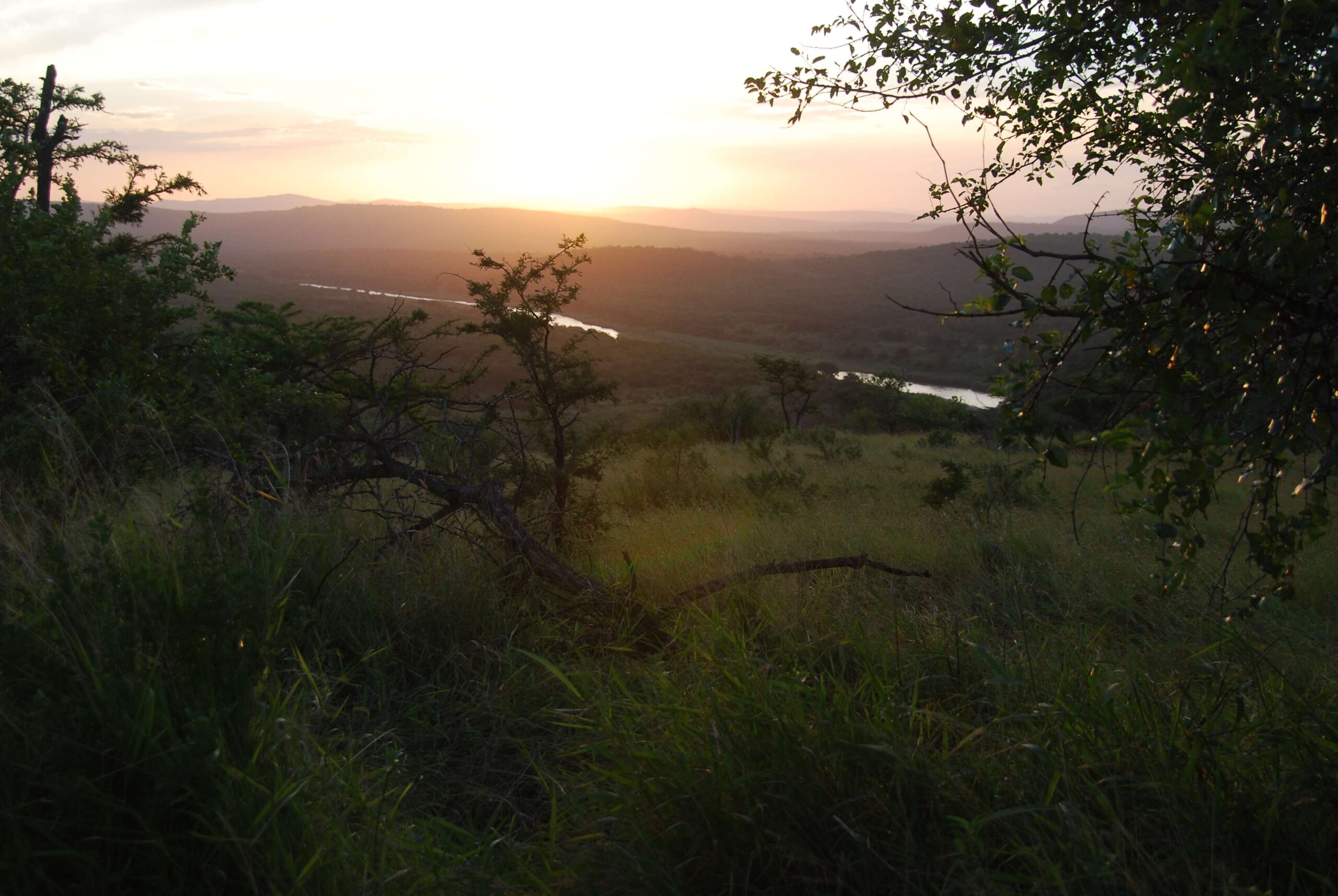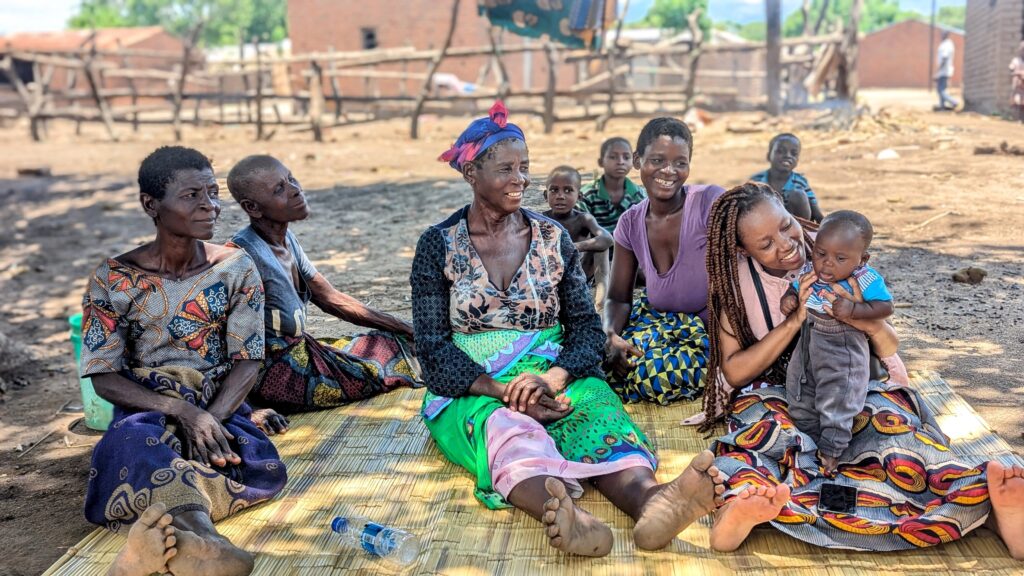
In November, Geoff and Dave travelled to Malawi to pay respects to Bishop Lloyd Chizenga, the late leader of APF’s key partner, New Life Christian Church. Besides spending time with Lloyd’s family, they also met the church leadership team and discussed the church’s ongoing sustainable agriculture project.
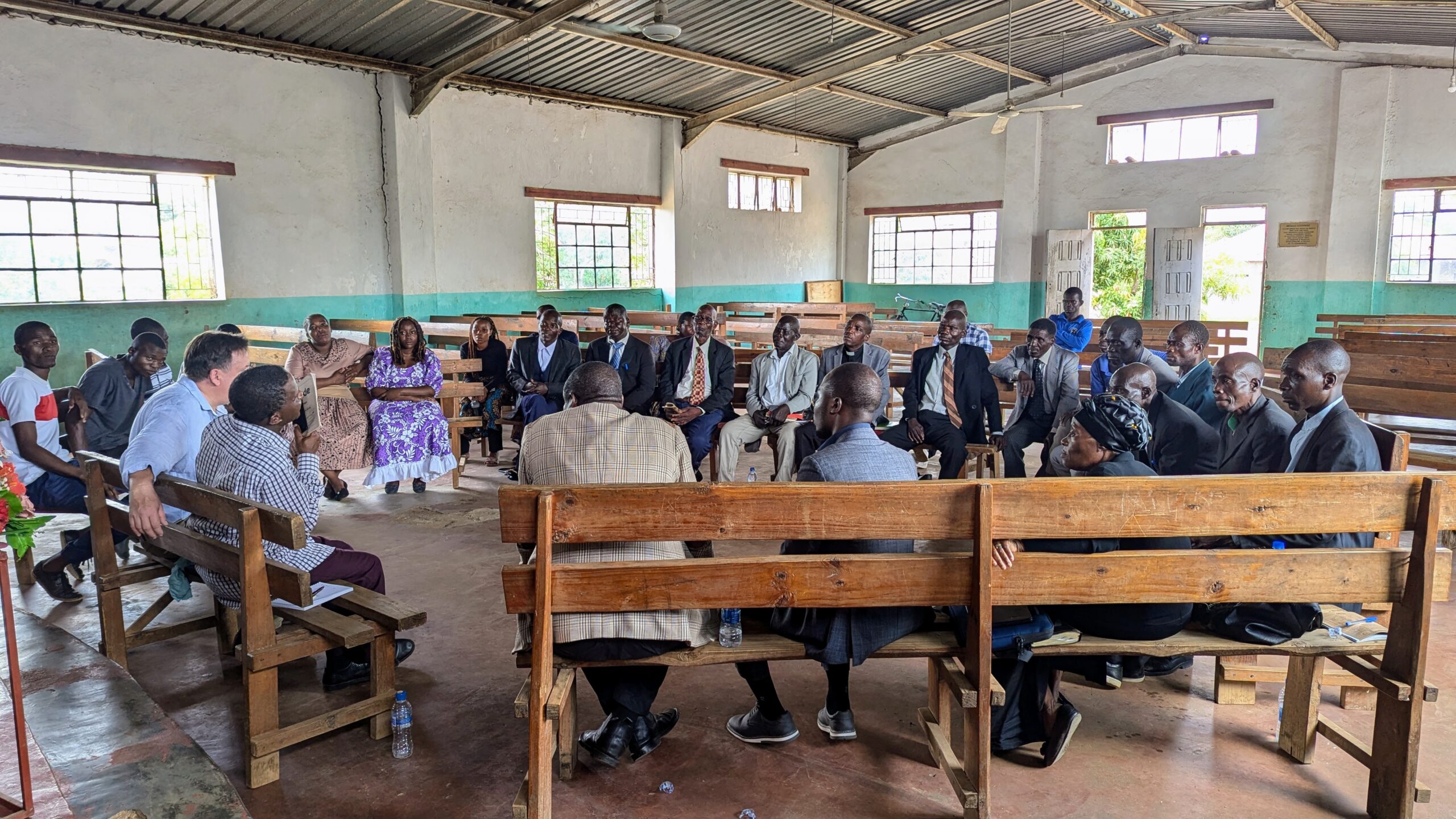
Meeting with NLCC leaders in Blantyre
New Life Christian Church is an indigenous African church network with approximately 150 congregations spread across central and southern Malawi and northern Mozambique. Meeting with regional overseers in Blantyre was crucial to reaffirm APF’s commitment to the partnership and explore the network’s priorities with the new church leadership.
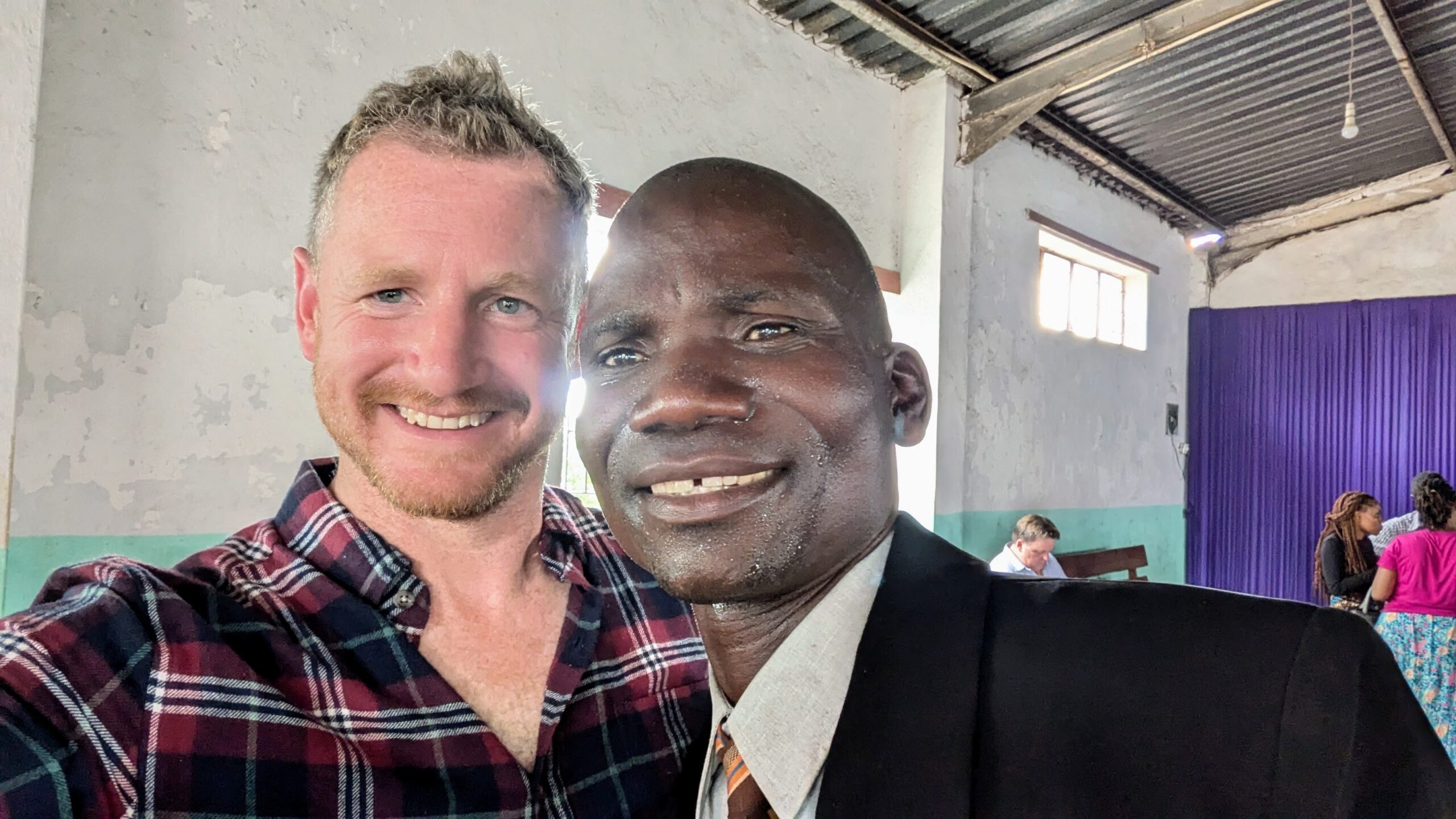
Pastor Souza travelled from Mozambique for the meeting
Most NLCC pastors have had no formal training, making in-service training a crucial priority. Pastor Souza from Mozambique highlighted the need for Chichewa language Bibles, bicycles, and income-generating projects to support his ministry.
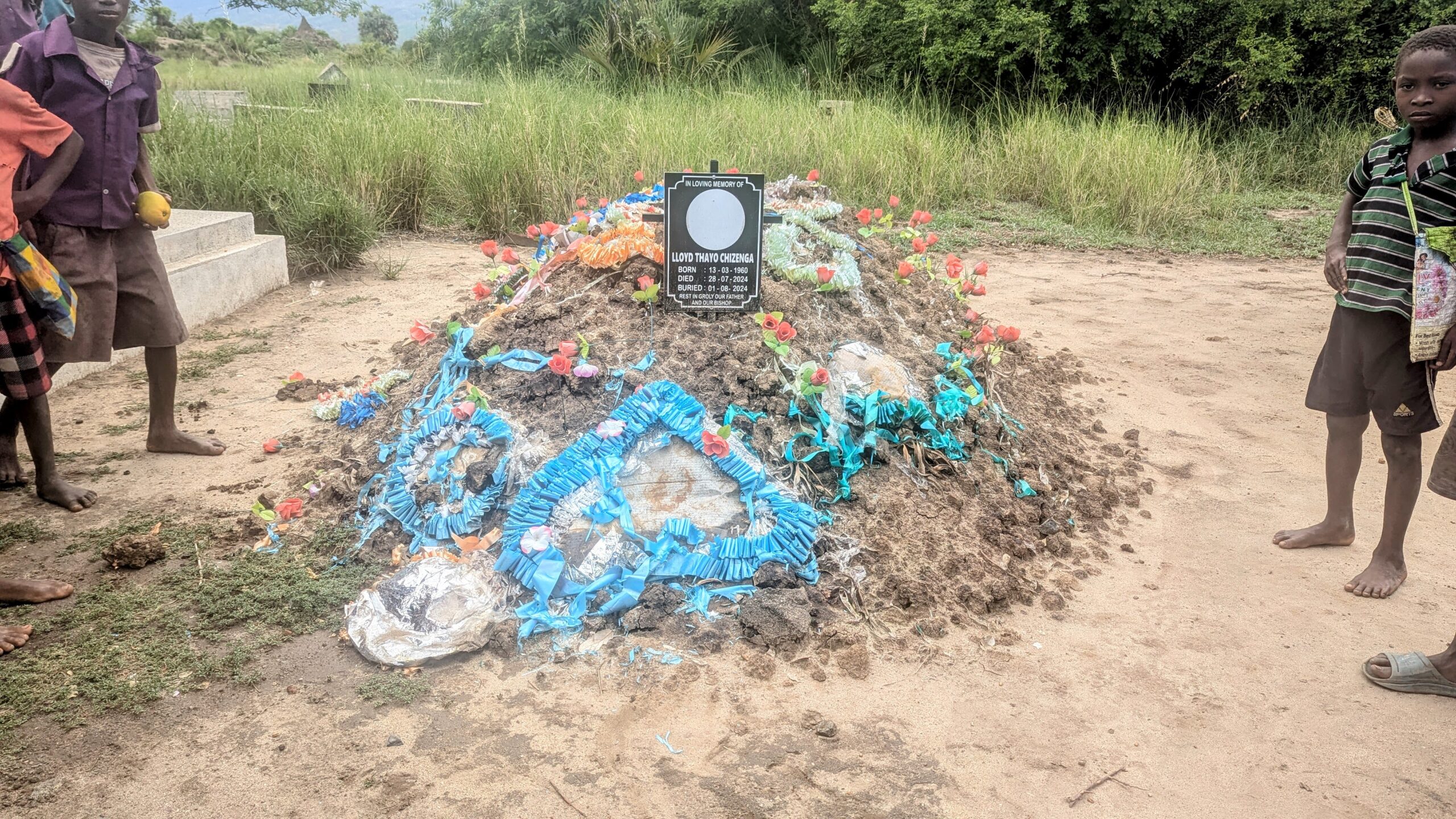
Bishop Lloyd’s grave
Visiting Bishop Lloyd’s grave required a long journey down a very rough washed-out road deep into rural Chikwawa District. Before visiting the grave, we had to obtain permission from the village headman. In this region of Africa, village cemeteries are traditionally situated within or near sacred groves of trees.
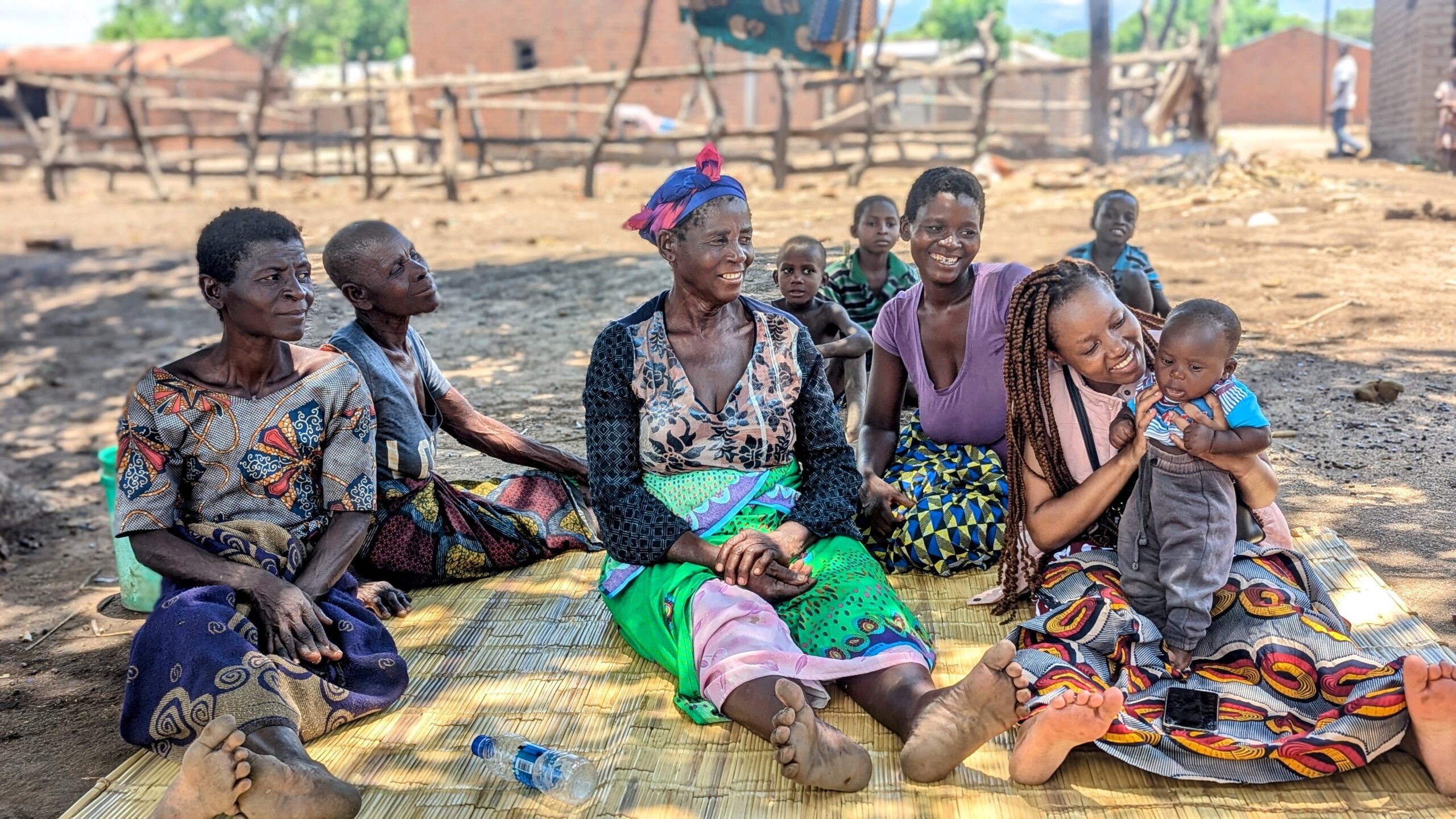
Meeting family members in the village
We met some of Lloyd’s extended family in the village, which was bustling with activity as people returned from their fields in the Shire River flood plain. They had been working since before dawn, digging the land in anticipation of the rains which they expected to arrive very soon.
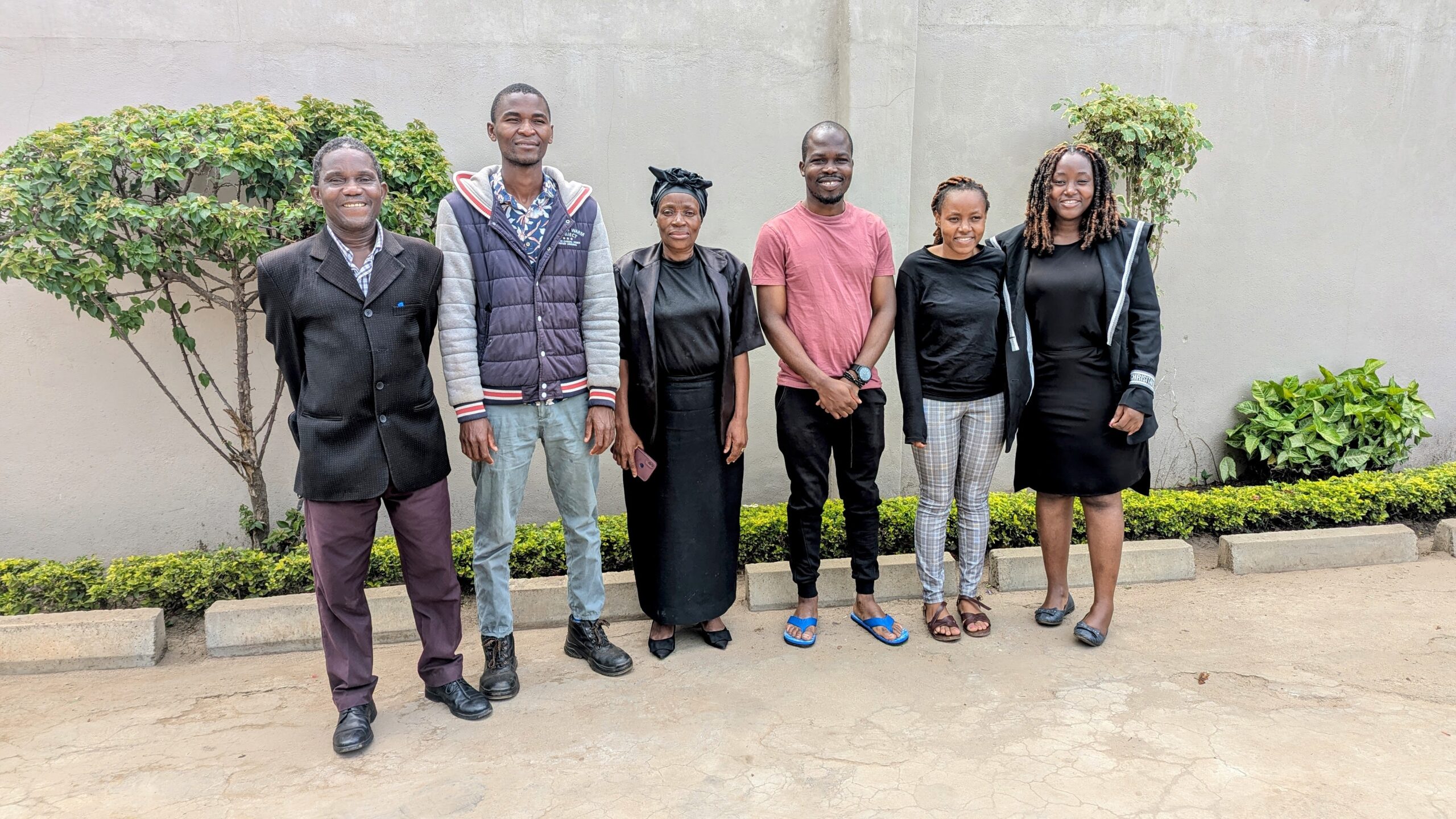
Lloyd’s widow, Jacqui (centre) with the project team of Hunta Faita, Alex Muwawa, Lonjezo Daniel, Bridget Chizenga and Johanna Chizenga.
A crucial part of the trip was meeting the new team who will lead the Growing Greener agriculture project (pictured right, with Bishop Lloyd’s widow). APF and Operation Agri have supported this wonderful initiative since Lloyd established it following the 2016 drought. With overwhelming demand for training in composting and many other essential sustainable agriculture techniques, plans were made to resume the programme in participating villages next year.

